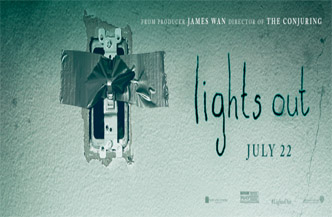|
|
Movie Review: Lights OutBy Ben GruchowAugust 3, 2016
This is based on a 2013 short of the same name, by the same director, in tone and spirit if not in the letter of the storytelling. That short is breathtaking in its purity; it consists of only two real scenes and an equivalent number of “scare” moments. The ratio works out in more or less the same ways in the feature version. This is an 81-minute feature that begins, ends, and behaves like a short film. It concludes with a response to the story’s central question - who/what is the shadowy woman? where did she come from? - but not, gratifyingly, a torturous and long-winded exposition dump and a protracted battle or struggle. Rebecca’s job in the film, initially to be the foil to her kinda-sorta boyfriend’s advances, quickly morphs into caretaker; Martin is so terrified at home that he falls asleep in school, which leads Rebecca to reestablish contact with Sophie. Something similar to this happened when Rebecca was a girl, given the advent of the same unseen or little-seen figure calling itself Diana. The movie wisely cloaks Sophie’s condition under a reasonable facsimile of reclusiveness and deep depression; when we look at her, we don’t necessarily see a supernatural influence so much as a woman worn down by either crisis or terror or both. Terror of what? Maybe it’s having Martin taken away from her, like Rebecca was. Maybe it’s just the crisis of losing multiple boyfriends and husbands, either to sudden departure or death. Bello provides layers to the character that the script doesn’t really give her or us the blueprint for, and it helps immeasurably.
|

|
|
|

|
Thursday, October 31, 2024
© 2024 Box Office Prophets, a division of One Of Us, Inc.


